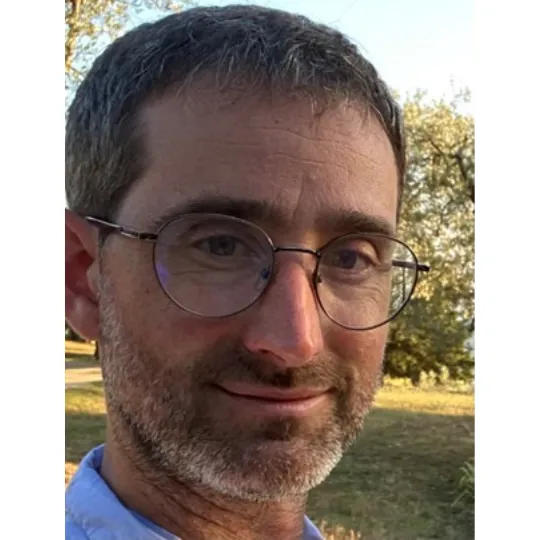The Jewish Holocaust was the most systematic, visible and largest in European history, but it was not the only one. So, it's important to try to understand the ideas that led to it. We must make sure that we don't allow such ideas to take root in our societies again"
Dr Pablo De Orellana
27 January 2023
War Studies Lecturer warns of the dangers of resurgent nationalist ideas in today's world
Dr Pablo De Orellana
To mark Holocaust Memorial Day, we interview Dr Pablo De Orellana, Lecturer in International Relations at the Department of War Studies

To mark Holocaust Memorial Day, we interview Dr Pablo De Orellana, Lecturer in International Relations at the Department of War Studies, about the ideology behind the greatest genocide in European history and its influence on recent political tensions.
Every 27 January marks the anniversary of the liberation of the largest Nazi death camp, Auschwitz-Birkenau, by Soviet troops in 1945. UNESCO established the date to remember the six million Jews murdered during the Holocaust and those killed under Nazi persecution of other groups, reaffirming the commitment to fight anti-Semitism and racism.
Dr De Orellana has developed research on diplomacy, nationalism, issues of identity and the link between art and conflict, showing that the Holocaust followed a rise in ethnonationalism – forms of nationalism that regard ethnicity and ethnic ties as core components of conceptions and experiences of the “nation”.
"In later years, it's become popular to make the Nazis extraordinary because there was a similar tendency to their ideas in Europe. We don't like to call them Nazism, but everything else is the same. Particularly, the mechanics of ethnonationalism, believing that people are born of a certain identity and their birth creates their motives and behaviour, which is always against other species. These ideas have been returned mostly through the New Right, the movement behind Fujimori in Peru, Bolsonaro in Brazil, and Brexit in the UK. So, it's not like these groups hate migrants, but in their opinion, they hurt the nation by being different", said Dr De Orellana.
In reviewing the events after the Holocaust, Dr De Orellana argues that although Britain played a crucial role in establishing a system of universal rights, some current changes could threaten progress in this matter.
The European and International Courts of Human Rights were Churchill's own personal projects to expand British universal rights to the world. However, many governments are working quite hard to delete these rights, for instance, creating a new British Bill of Rights, which gives British people rights, rather than considering them human rights"
Dr Pablo De Orellana
Regarding recent nationalist movements, such as the Bharatiya Janata Party (BJP) in India, the Brexit Party in the UK, Lega in Italy, and the Rassemblement National Party in France, Dr De Orellana points out that particular focus should also be placed on the situation in Brazil. "Revolution could be understood as disestablishing and destroying existing structures and governments. We've only seen it from the far right, and we saw it more clearly in Brazil. Senior people were involved with written plans to replace the government to put Lula in prison and Bolsonaro back in power for the country's good and the race. The Bolsonaro movement is mostly about continuing a kind of triumphalist colonialism, and their supporters will not wait for the next election to speak out. The far right is positioning itself very strongly globally", he concluded.
Due to his expertise, Dr De Orellana was invited to join the BBC documentary series' Rise of the Nazis', launched in February 2019 and which, through three chapters, analyses how Hitler and the Nazis took power in Germany. Additionally, in October 2022, he published the book 'Global Nationalism' with Dr Nicholas Michelsen, Lecturer in International Relations Theory at the Department of War Studies, whose research was recently mentioned in a House of Lords debate commemorating Holocaust Memorial Day.
Auschwitz Concentration Camp photo by Luke Lawreszuk.


